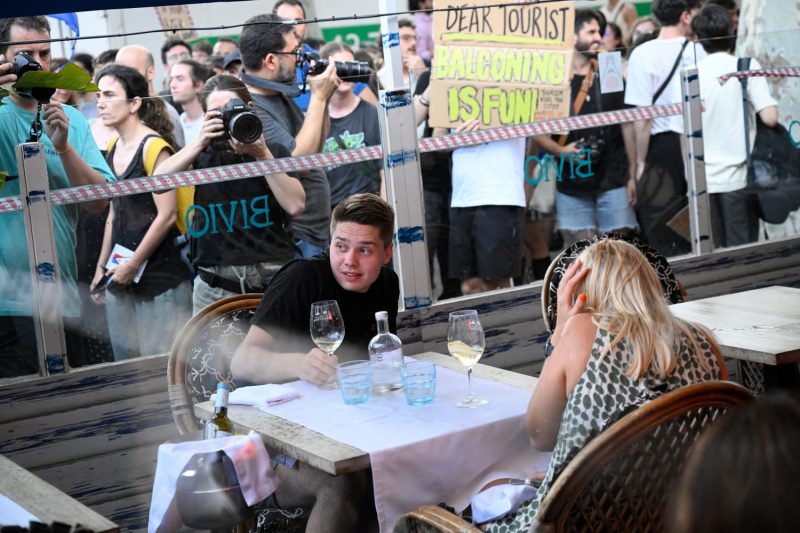Barcelona Protesters: Voices of Dissent or Unruly Behavior?
The city of Barcelona, known for its vibrant culture, stunning architecture, and beautiful beaches, has recently been in the spotlight due to a series of protests that have turned violent. In a recent incident, protesters took to the streets, hurling items and spraying travelers with water while shouting tourists go home. The scene has raised questions about the motivations behind these actions and sparked a debate about the impact of tourism on local communities.
On the surface, the actions of the protesters may seem hostile and unwelcoming, tarnishing the image of Barcelona as a popular tourist destination. However, delving deeper into the issue reveals a complex web of underlying concerns and grievances that have fueled these protests. At the heart of the matter is the phenomenon of overtourism, where an influx of tourists overwhelms local infrastructure, disrupts daily life, and alters the cultural fabric of a city.
For many residents of Barcelona, the rapid increase in tourism has led to rising rents, overcrowded public spaces, and a loss of authentic local experiences. The surge in short-term rental properties, facilitated by platforms like Airbnb, has driven up housing prices, pushing long-time residents out of their neighborhoods and eroding the sense of community. In addition, the commodification of culture to cater to tourist expectations has led to the commercialization of once-authentic traditions and practices.
In this context, the actions of the protesters can be seen as a desperate cry for attention and a demand for change. By targeting tourists directly, they are drawing attention to the disproportionate impact of tourism on local residents and calling for a more sustainable and inclusive approach to tourism management. Rather than dismissing the protests as mere acts of vandalism, it is essential to engage with the underlying issues and work towards finding solutions that benefit both tourists and locals.
One possible way forward is through responsible tourism practices that prioritize the well-being of local communities and promote a deeper understanding of the cultural and social dynamics of a destination. This includes supporting small businesses, engaging in respectful interactions with local residents, and minimizing negative environmental impacts. By fostering a more balanced and respectful relationship between tourists and locals, we can create a more harmonious and sustainable tourism model that benefits everyone involved.
In conclusion, the protests in Barcelona serve as a stark reminder of the complexities surrounding tourism and its impact on local communities. While the actions of the protesters may be seen as extreme, they highlight legitimate concerns that cannot be ignored. By addressing the root causes of discontent and working towards a more collaborative approach to tourism, we can strive to create a more equitable and inclusive travel experience for all.



























